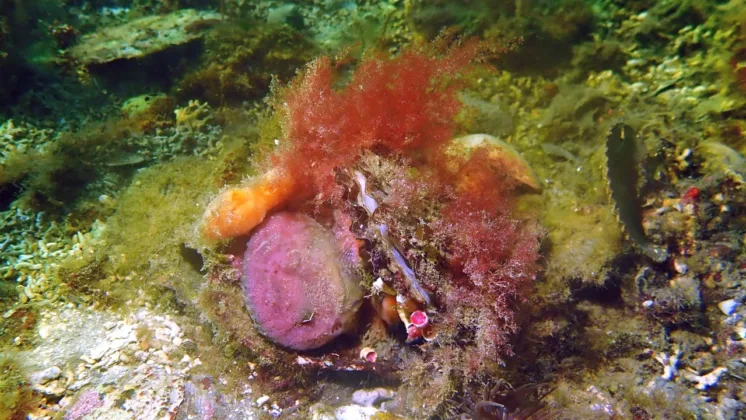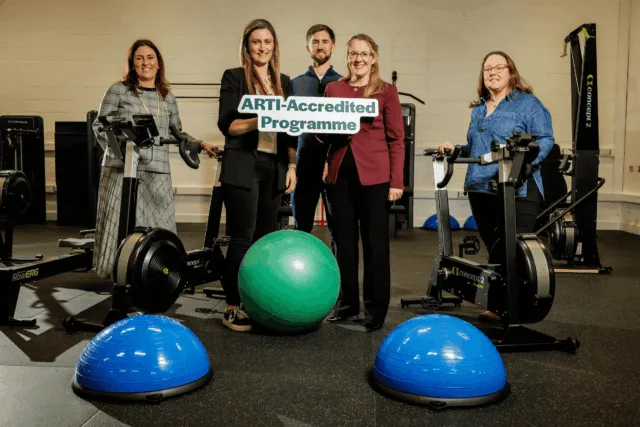ATU plays leading role in first €1.5m all-island project to restore Ireland’s native oyster reefs
Atlantic Technological University (ATU) scientists are playing a leading role in a new €1.5 million All-Ireland project to restore native oyster reefs and strengthen coastal resilience.

The project, BRICONS (Building Resilient Irish Coasts through Oyster Restoration: A Nature-Based Solution for Enhancing Marine Biodiversity and Ecosystems), is funded by the Marine Institute under its Marine Research Programme and represents the first coordinated All-Island initiative of its kind.
Led by University College Dublin (UCD) in collaboration with ATU, Queen’s University Belfast (QUB) and Trinity College Dublin (TCD), the five-year project aims to bring back native flat oyster reefs to Irish and Northern Irish waters, enhancing biodiversity while protecting coasts from erosion and pollution.
Restoring Ireland’s last native oyster habitats
Over the coming months, researchers from ATU and partner universities will begin field assessments at pilot restoration sites in Connemara, Belfast Lough, and key coastal areas in Dublin to identify suitable habitats for oyster reef recovery.
The ATU team will deploy ecological monitoring equipment to study water quality, sediment stability, and continue their current studies on marine biodiversity and native oyster populations around these sites. Drawing on methods developed through ATU’s earlier OISRE Conamara project, the researchers will trial innovative approaches for re-establishing self-sustaining oyster populations — including the use of locally sourced oyster seed and natural shell cultch to create reef structures that support rich marine life.
These restoration trials will contribute vital data to inform Ireland’s forthcoming National Restoration Plan under the EU Nature Restoration Law, demonstrating how community-led, nature-based solutions can deliver real ecological and social benefits for coastal regions.
ATU leads the ecological research effort
Dr José M. Fariñas-Franco, Principal Investigator for BRICONS at ATU, said:
The native European oyster is a keystone species in Ireland’s marine ecosystems, forming biodiverse reefs that support coastal livelihoods and act as natural defences against pollution and climate impacts.
BRICONS marks the first coordinated All-Ireland initiative to restore these threatened habitats where they once thrived. At ATU, we are proud to contribute critical ecological data from our Connemara study sites, expanding our ongoing restoration efforts in collaboration with Comharchumann Sliogéisc Chonamara Teo and Údarás na Gaeltachta. This project exemplifies how nature-based solutions can address the twin crises of biodiversity loss and climate change, and I’m delighted to work alongside our partners in Dublin and Belfast with the support of the Marine Institute.
Building on ATU’s pioneering work mapping Europe’s last remaining native oyster beds, Dr Fariñas-Franco’s research has become the foundation for BRICONS’ ecological restoration efforts across the island.
Collaboration for resilient coasts
“We will assess how these reefs can stabilise sediments, improve biodiversity, enhance water quality, and provide a natural buffer to the impacts of climate change, all while supporting the sustainable use of our harbours and ports,”
said Project Coordinator Dr Paul Brooks, UCD School of Biology and Environmental Science.
Working closely with Irish ports, harbour authorities and coastal community groups, the BRICONS team will establish pilot restoration sites to demonstrate how oyster reefs can serve as viable, scalable tools for managing coastal change and sustaining marine biodiversity.
The project is supported by the Marine Institute under the Marine Research Programme, funded by the Government of Ireland.
For more information, please visit: www.briconsproject.com.
Photo credit: Dr José M. Fariñas-Franco, ATU



